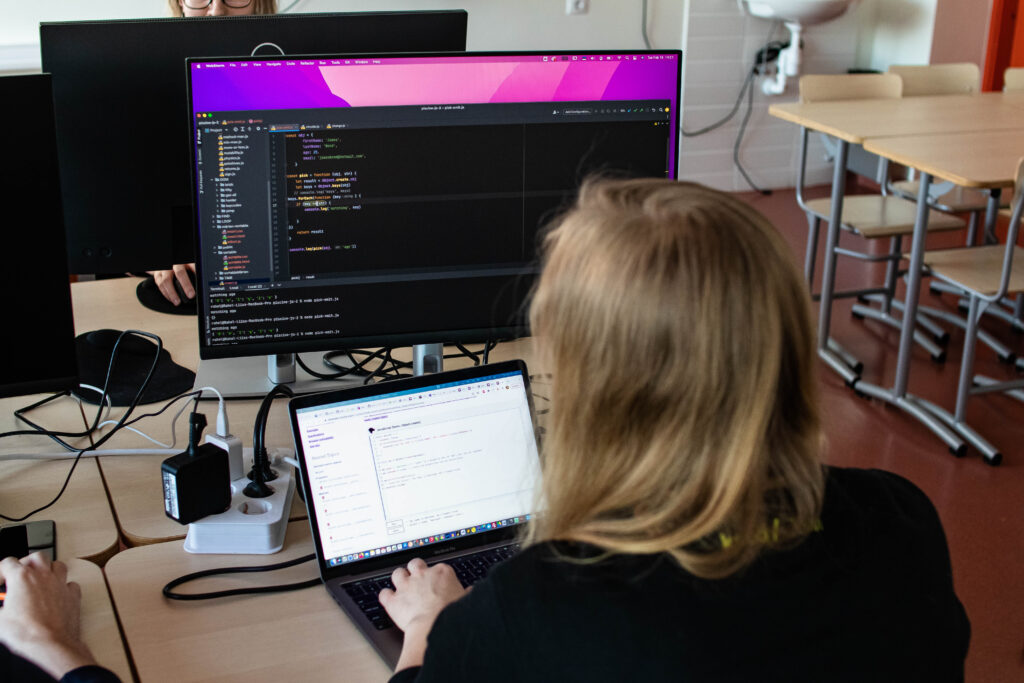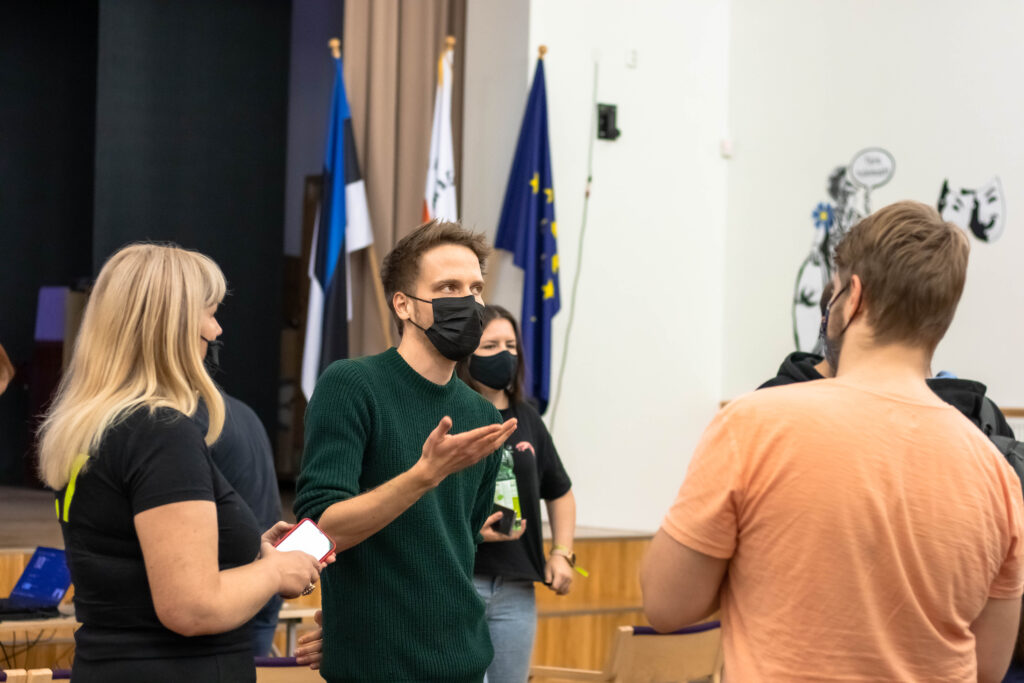Technical interviews – “How to?”
Finding a new job can be exciting and frustrating at once. After lots of research and reading about different companies, finally, you find a role that fits you and your skills. But, applying for it is just the start. You have to participate in an interview process and go over multiple steps to prove yourself as a future employee to the company. The number of steps can differ depending on the department and the role you are applying for, but if you are not prepared for interviews, you might lose the chance to get hired.
In this article, we will go over the usual steps that you have to take to get hired as a Front End Engineer. Of course, there is not just one way to hire people, nor a recipe for candidates to pass the interviews. Since not everyone will be the right candidate for every company and the other way around, the most important thing is to be ready to be your best self during the interviews. If you have information about the road in front of you, you will have a great chance to convince the employer you are the candidate they are looking for. In this particular article, we will focus on the engineering part of the process.

Domain knowledge
Usually, the first step of the engineering process would be an interview to understand your knowledge in the specific domains of the role. Nowadays, almost all Front End Engineers should have enough knowledge about JavaScript (or TypeScript). (This is one of the languages learned at kood/Jõhvi during the 2 years!). The purpose of this interview is to deep dive into how fluent you are in JS. You might be asked to describe some concepts, implement different functions and algorithms, calculate the output of a piece of code or even do some pair programming.
Usually, the interviewer will go over different aspects of the domain by asking questions with different levels of complexity.
Tip: Do not be afraid to ask questions or think loudly because you can prove to the person in front of you that even if you can not solve the problem, you have some good pieces of information about the concepts (Do not overuse it).
Coding Challenge
Nothing can expose your Front End abilities better than code. There are lots of concepts and skills that can not be asked during interviews. So, a lot of companies opt to ask you to do a task to show your skills. The company will provide the task and ask you to do it at home or in some cases the company may invite you to the office. In this step, you are just simulating the way of doing tasks at the company and usually, you have a fixed or flexible time depending on the task.
Pro Tips:
Try to do your best and show what you can do as a Front End Engineer. Read about the requirements and “Plus Features” of the challenge and deliver the task with the highest possible quality. Write clean codes, pay attention to best practices and maybe try to use “Plus features” to show you are the best person for the job and take care of details and bugs. If you are asked to use a specific tool for some parts, do not replace it with another one. Do what you have been asked and do it in the right way!
Your code should be self-speaking, how you can ensure this?
- Providing good documentation;
- explaining your solutions;
- and having great structures;
– these are the most important factors in passing this step.
Code review and specialized session
If your task was what the company expected you will be invited to this step. Probably this is one of the most important and challenging parts of the hiring process. First, you are going to be asked to explain some parts of your code and discuss with the interviewer about other possible solutions. You do not have to accept everything, if you think something they are pointing out is wrong, don’t be afraid to speak up. Keep in mind that sometimes giving you wrong solutions or answers could be part of the process to understand if you can identify it and evaluate your ability to choose the right direction.

Furthermore, you will face some more specialized questions regarding the role you are applying for. You may also be asked to dive deep into different concepts of JS or UI libraries with your future colleagues and leaders to evaluate your abilities as an Engineer. Prepare yourself to speak and define easy and hard concepts and describe your experiences. This is the best step to show your knowledge and also to ask questions about your future role and tasks in the company.
Product knowledge
One of the biggest mistakes during the hiring process is to underestimate this step. You’re probably going to speak with Product Managers or Technical leads from the company to show how much you know about your future job. Honestly, You can not work on a product that you do not like with good performance. So, it is very important to know the product, technical stack, and tools of your future company as much as possible.

This step is the best place to ask questions about the development flow, technical challenges, different aspects of the product, and the plans of the company to expand it. Long story short, you have to make sure that you know the company and the product at the end of this session.
Have in mind to…
- In all the steps, be kind, polite, and friendly. We are human after all.
- Try to discuss respectfully when your opinion about some concept is not the same as the interviewer’s. You should not accept everything without reason.
- Ask questions even if you think they are stupid. Do not be afraid to know your future job better.
- If you feel sick or stressed before the session, check if it is possible to change the time. You must be well prepared mentally for the interviews and everybody understands it.
- Be on time and wear good clothes even if the interview is online.
- Answer with “I don’t know” when you do not know! Nothing is worse than trying to make up stories when you do not have any idea about the questions.
- Do not get stressed when you can not answer a question. Learn about it and show your passion for learning because it has a really good effect on the interviewer.
- Ask about the feedback at the end of every meeting. Usually, interviewers provide some feedback if they will be allowed. Getting comments and feedback helps you to improve your personality and abilities.
Wrap up
This article is not a secret weapon that will ensure you get every single job you’ve to do a process for. Take it as a guide with some common information on your way to getting your future job. The structure of the hiring process might be different between companies or even teams but the most important parts of them have been covered here. If you get rejected in some process, do not be disappointed or get stressed! It means you and the company are not a match and getting hired is going to make your life harder. Just be patient and you will find your dream job as soon as possible. Always be prepared and good luck!
Author: Hossein Ahmadi, Front-End Engineer at Veriff